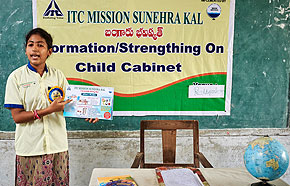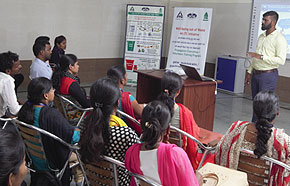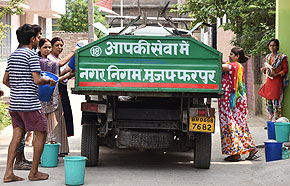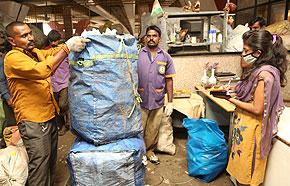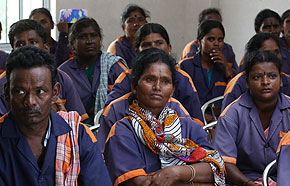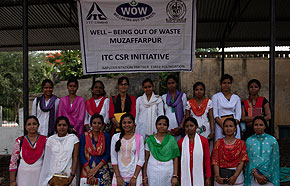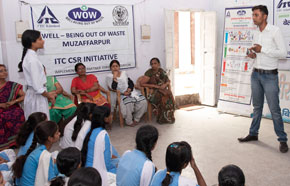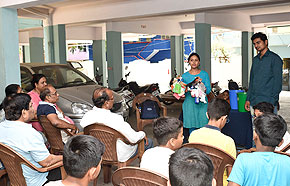The Indian Context
Waste generation in India has soared steeply, mainly as a result of three factors - a large and growing population, rapid and unplanned urbanisation and, perhaps most importantly, swiftly rising consumption levels. However, waste disposal and management infrastructure has lagged severely, creating a massive problem. Heaps of waste are a common sight in towns and cities and the majority goes untreated into landfills - a serious public health risk, environmental hazard and an enormous waste of resources.
ITC's Contribution
ITC's Well-being Out of Waste (WOW) initiative promotes awareness about the importance of source segregation and recycling, and establishes systems to ensure effective practice. It collaborates with local municipalities to train waste workers and rag-pickers in these concepts and to provide an efficient collection system that covers virtually all segments: households, offices, schools, hospitals, commercial establishments, etc.
Proper segregation reduces the amount of waste going to landfills while the dry waste collected provides competitive raw material to several industries, e.g. glass, paper and plastic. Rag-pickers and waste workers also earn higher and more regular incomes.
Along with WOW, ITC is also implementing several other waste management projects along the same lines but tailored to local situations, e.g. promoting home composting or involving women's self-help groups.











